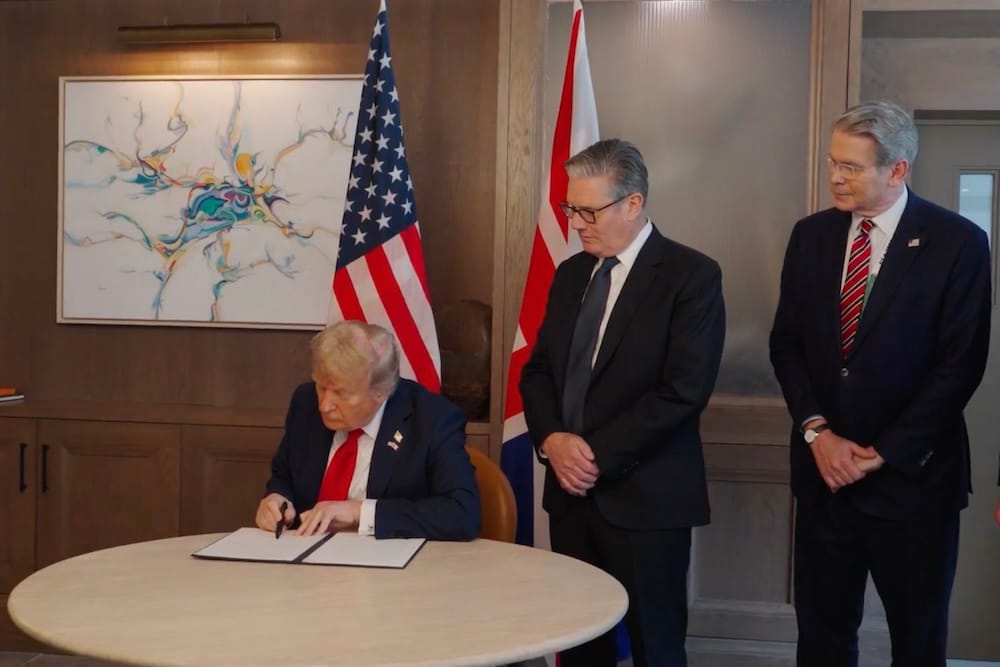

Historic Trade Agreement Strengthens US-UK Ties
On June 16, President Donald J. Trump and British Prime Minister Keir Starmer signed the Economic Prosperity Deal, a significant step forward in trade relations between the United States and the United Kingdom. This agreement, unveiled during the G7 Summit in Canada, focuses on reducing tariffs and enhancing market access for American exports, particularly in agriculture. The White House has highlighted that this deal opens up billions of dollars in opportunities, with a specific emphasis on boosting sectors like beef and ethanol.
The pact addresses long-standing barriers that have hindered American goods from competing fairly in the UK market. By reducing or eliminating certain tariffs and nontariff barriers, the deal aims to provide a substantial economic lift, estimated at $5 billion for U.S. producers. This move underscores the administration's commitment to prioritizing American farmers and manufacturers in international trade negotiations.
Agricultural Disparities Come to Light
While the deal promises economic benefits, it also brings attention to differences in agricultural practices between the two nations. The agreement includes increased market access for U.S. beef and ethanol, with specific figures citing $700 million for ethanol and $250 million for beef exports. However, concerns have been raised about the impact on UK farmers, who may face competition from American products produced under different standards.
The reduction of tariffs on ethanol, a key component in manufacturing and fuel production, is seen as a major win for U.S. producers. Yet, posts found on social media platforms like X indicate mixed sentiments, with some suggesting that UK grain markets could suffer due to the influx of tariff-free American ethanol, potentially affecting demand for local wheat. Despite these concerns, the deal maintains that UK food standards will not be altered, aiming to balance economic gains with regulatory integrity.
This disparity in agricultural approaches highlights a broader challenge in aligning trade policies with domestic priorities. The administration's focus remains on securing advantages for American stakeholders, ensuring that the benefits of this agreement are felt across rural communities and agricultural sectors in the United States.
Economic Impacts and Future Prospects
Beyond agriculture, the Economic Prosperity Deal offers tariff relief for British car exports to the U.S., dropping rates from 25 percent to 10 percent on the first 100,000 vehicles annually. This reciprocal arrangement is designed to foster job security in both nations' manufacturing sectors. While steel and aluminum tariff agreements are still pending, the current pact sets a foundation for further negotiations that could expand economic cooperation.
The administration views this deal as a strategic victory, emphasizing an America-first approach to trade. By dismantling barriers and securing new export opportunities, the agreement not only boosts immediate economic prospects but also strengthens the historic partnership between the U.S. and the UK. As discussions continue, the focus will likely remain on ensuring that American interests are safeguarded in every aspect of this evolving relationship.
Dues are $12 per year. Member benefits:
✅ Ad-Free Website Viewing
✅ Advocacy for Republican Seniors
✅ 120+ Senior Discounts
✅ Member Only Newsletters